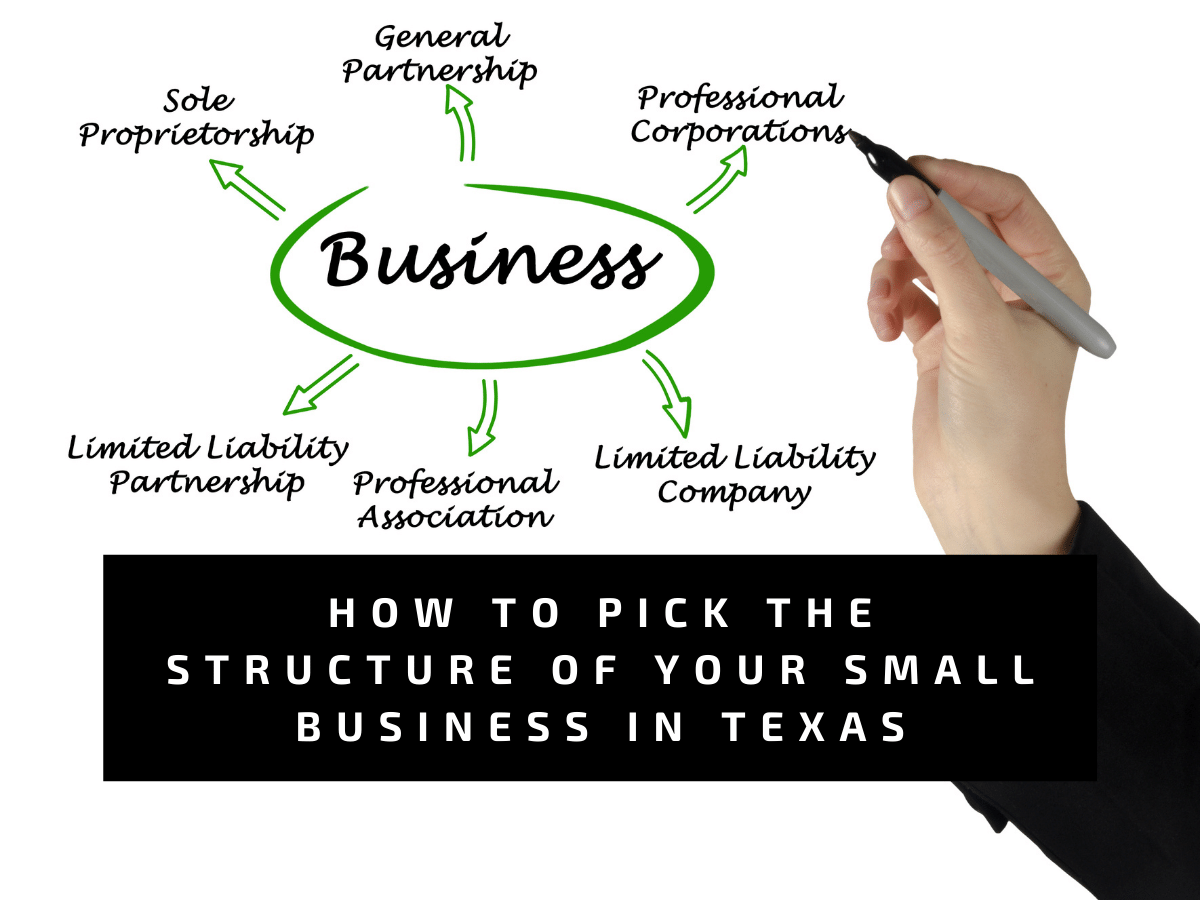Texas gives you the ideal business ecosystem in the nation and has frequently been named the ideal state to start a business. Our leading business climate and a favorable regulatory environment give the groundwork small businesses and entrepreneurs will and need to succeed. If you are trying to relocate your business to Texas, you need to keep reading.
If you want to know how you can pick the structure of your business in Texas and how to move the business to Texas, then read ahead. You will get to know about the process of starting your business in a few simple steps. It is suggested you seek the guidance of a professional tax consultant and an attorney that would help you verify that all of the legal requirements are met before opening your business.
A Few Forms Of Structures That Businesses Can Be Created And Operated Are As Follows:
Sole Proprietorship:
Sole Proprietorship is the most common type of small business in the state of Texas and the easiest type of business to form. This type of business structure is often favored by individual service providers and those who are starting their business on a shoestring budget. A single individual engages in some business activity without the needed formal organization in this form.
If the business is carried out under an assumed name, then an assumed name certificate must be filed with the county clerk’s office in the county where the business premises are maintained. If no business premise is maintained, then the assumed name certificate must be filed in all counties where this business operates under an assumed name.
General Partnership:
A general partnership is created when two or even more people link to carry on a business for gains. A partnership generally operates following the partnership agreement, but there is no need for requirements that an agreement is in writing, and no state filing requirement is needed. If the business operates under a name that does not include the surname of all of the partners, it is necessary to file an assumed name certificate with the office of the county clerk where the business premise is maintained.
Limited Partnership:
A limited partnership has one or more general partners and one or more limited partners. As with a general partnership, the individuals typically have a partnership agreement. However, this agreement is not required to be filed with any Texas agency.
To create a limited partnership, you must file a certificate of formation with the Texas Secretary of State.
Limited Liability Partnership:
When partners wish to limit their personal liability, a general or limited partnership may choose to register as a limited liability partnership. With this structure, each partner is protected from claims related to negligence, incompetence, or error of their co-partners.
You must complete a form with the Secretary of State to register as a limited liability partnership.
Corporation
A corporation is a type of business that has limited liability, perpetual duration, centralization of management, and an ease in the transferability of ownership interests. The owners are referred to as shareholders, while the people who manage the business and its affairs are called directors.
The corporate structure is often created when you need to attract investment capital or wish to offer employees stock options as part of the recruitment process. Forming a corporation may also be attractive when you wish to reduce tax liability. In many cases, a corporation and its owners receive a lower combined tax bill than the owners of an unincorporated business earning the same profit.
To create a corporation, you must file a certificate of formation with the Texas Secretary of State. If you want your for-profit corporation to be taxed as an “S” corporation, you must also file an election with the Internal Revenue Service.
Limited Liability Company
A Texas limited liability company (LLC) has the powers of both a corporation and a partnership, which gives it structural flexibility and favorable tax treatment. The owners are called members and can be an individual, partnership, trust, corporation, or other legal or commercial entity. In most cases, member liability is limited to their investment. Members can also take advantage of the pass-through tax treatment granted to partners in a partnership.
A limited liability company is often recommended when your business involves activities that could result in customers suing your company if something goes wrong. For example, if you wanted to start a business repairing roofs, you wouldn’t want to place your personal assets at risk in the event of a lawsuit.
You must file a certificate of formation with the Texas Secretary of State to create a Texas limited liability company. Online filing of this certificate of formation is given through SOSDirect.
Making the Choice That’s Right for Your Business
Choosing the right type of business structure requires you to consider many different variables regarding how your business plans to operate. There are so many different factors and so many different elements you need localized assistance to make the transition a success. As you are trying to develop your products, sell your products, and start a business, you want to make sure to protect your liability.
Our friend and legal expert David Denney can help answer your questions about business formation within the state of Texas and ensure that your business is properly structured from the beginning. Call him today or visit the Denney Law Group on the web to learn more. His team will be able to guide and advise you on the best way to protect your liability, what your exposure might be, and ensure that every entity you choose best protects you and your business.
Get Help Moving or Relocating Your Existing Business to Texas
If you already have a business and would like to connect to economic development organizations across Texas that can help you relocate or expand your existing business to Texas, let our team make the connection. Connect with us here or complete our Relocation Planning Tool today to get started.



